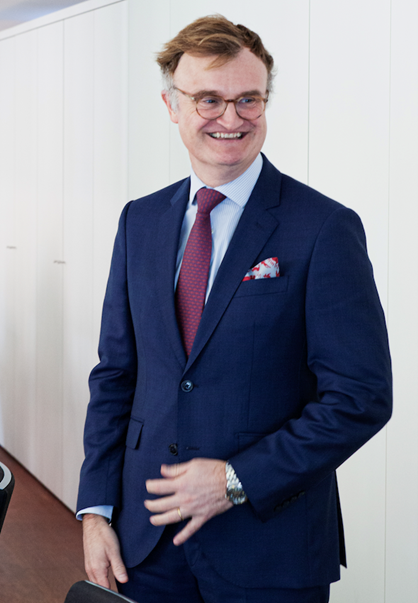
Editorial by Managing Director Alexander De Beir
Forza 24!
Two words are increasingly prominent when discussing the future prospects of the economy and business world: robustness and resilience. Robustness in economics is attributed to (financial) markets that continue to perform despite alterations in market conditions. In general, a system is considered robust if it can handle variability and remain effective. It refers to the capacity to withstand or recover quickly from difficulties, demonstrating toughness (Investopedio.com, 2023).
Resilience, according to the IT and networking world leader Cisco, describes an organization’s ability to respond and adapt quickly to disruptions or significant, unplanned changes that could threaten its operations, people, assets, brand or reputation. Both terms, therefore, point out the (will)power to resist and adapt simultaneously to a changing and sometimes hostile environment.
AI, what do you think?
At first glance, the business world of tomorrow doesn’t seem to be for the faint-hearted. The good news: tools or “brain enhancers” are not only allowed but also recommended. In 2024, those aiming to seize all opportunities for success in their entrepreneurial objectives are better off with AI assistance. It’s fascinating to read, for those still in doubt, about the significant AI trends Forbes predicts for 2024 (Forbes.com, 2023).
Is there no room left for the soft-hearted? It all depends on what you consider “soft.” Due to its efficiency, AI actually frees up time for the working individual to showcase their soft skills. Forbes also predicts that: “As it becomes increasingly feasible to automate technical aspects of work – coding, research, or data management, for example – the ability to leverage soft skills for tasks that still require a human touch becomes critical. For this reason, in 2024, we will see organizations increasing their investment in developing and nurturing skills and attributes such as emotional intelligence, communication, interpersonal problem-solving, high-level strategy and thought leadership.”
Some doomsayers may rightly expect that many jobs will be lost to AI, but people, especially interim managers, will provide the necessary human touch in every mission. Combining sustainability, creativity and ethics with performance, speed and efficiency. It’s a testament to how soft skills can be strong assets.
I stumbled upon this definition serendipitously through a Google search on the website of the International Organization for Migration…
From integrity, I continued my exploration to a word closely resembling it: “integration.” I rediscovered the Latin root of the word “integrate”: “integrare,” which means “to make whole.” I came across a quote from the actress and producer America Ferrera: “I can’t be the leader I’m meant to be without all of the parts of who I am.”
Hence, integrity and integration primarily revolve around a whole and how one, as a whole-part, can become part of a new whole. It’s not a deconstruction of one’s identity or aspirations but a construction, akin to how each of us builds and enriches our identity through layers.
This is what I aspire to retain from the tumultuous final months of this era and carry forward into the beckoning new year. Those who are resilient, grounded on solid foundations, become an even better, or “fuller,” version of themselves by integrating with other wholes.
External forces as inspiration
Another strength that will hopefully continue to distinguish our human brain from AI is its ability to interpret and contextualize societal and economic phenomena based on personal experiences. An interesting example is the Flemish digital entrepreneur Jo Caudron (Tijd 14/12). In his new book ‘The Future Formula,’ he manages to grasp significant themes and link them to his earlier insights into innovation or digital transformation. He even devises a kind of formula to help the reader translate major societal forces and challenges into their own situation.
Innovation remains a keyword for him. In addition to product innovation and sourcing innovation, he advocates for business model innovation. According to him, this is linked to the shift from a possession economy to a usage economy. This happens to be a fundamental model of Interim Management. In the future, companies will be able to leverage external forces and talents without maintaining the illusion of possessing them through a contractual fixed agreement. This requires a change in mentality for some, but it’s already right around the corner and… Gen Z will certainly not oppose it.
This is, of course, very good news in a world where the tendency is to think that we are increasingly limited in our freedoms. Those who feel free in their work will, therefore, not feel any less responsible; on the contrary, it gives rise to the (will)power to give the best from within. I wish this to all of you in 2024!
We must resist the temptation of hasty judgments. Why? Those two individuals you thought of at the beginning of this article as examples of people with integrity likely built their reputation gradually into a robust image. (Perhaps) slowly, but certainly. In the face of the demand for immediacy imposed upon us, it is crucial to afford a value like “time” the time it deserves.
Sources: